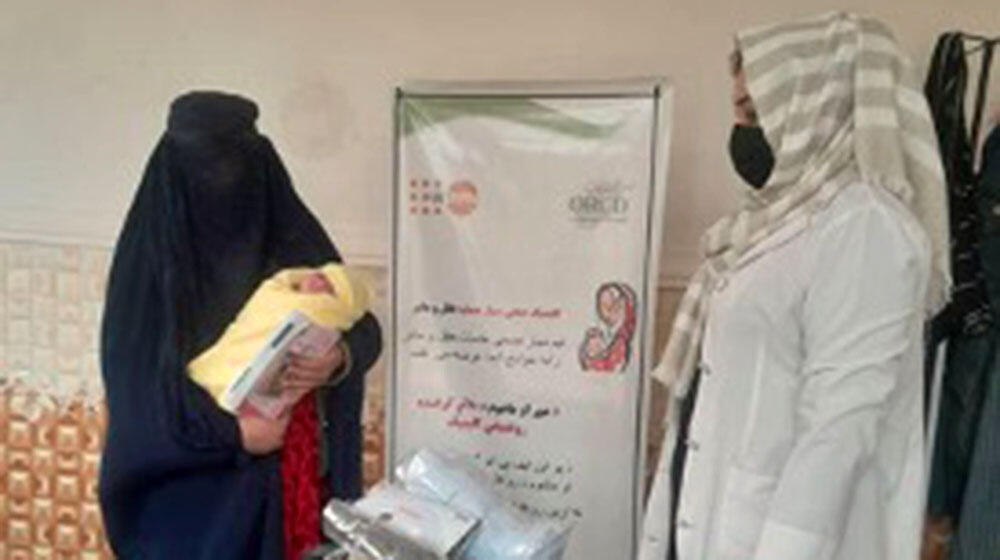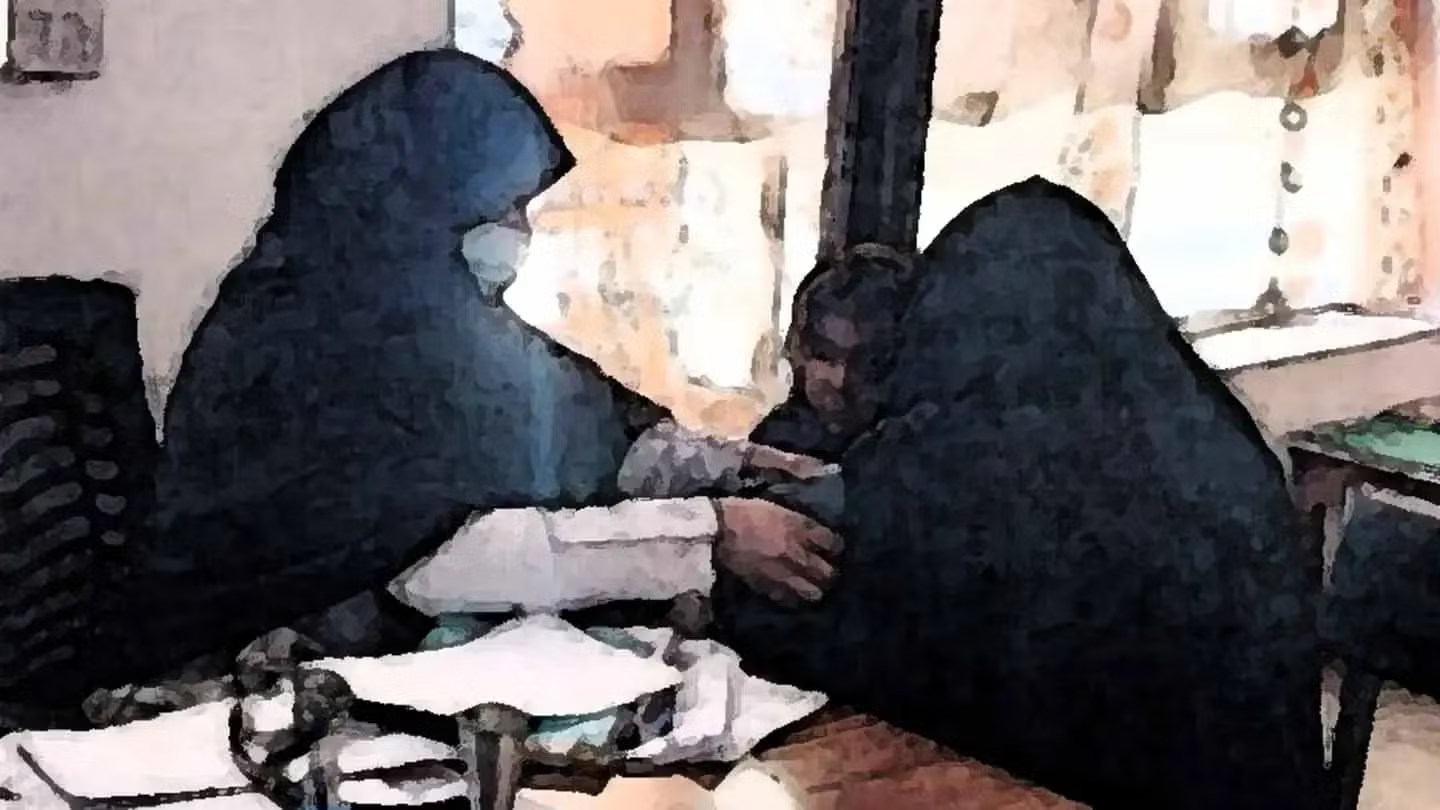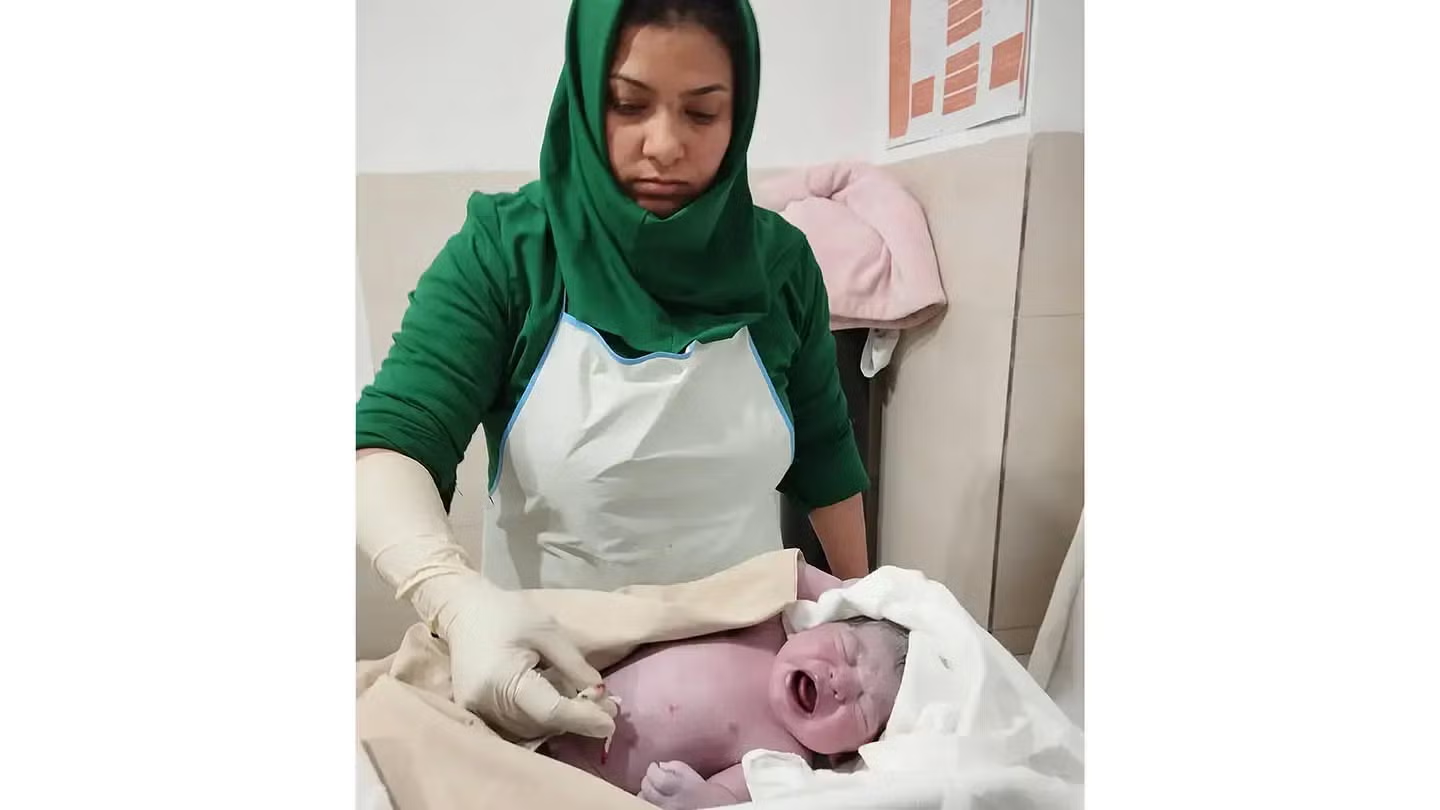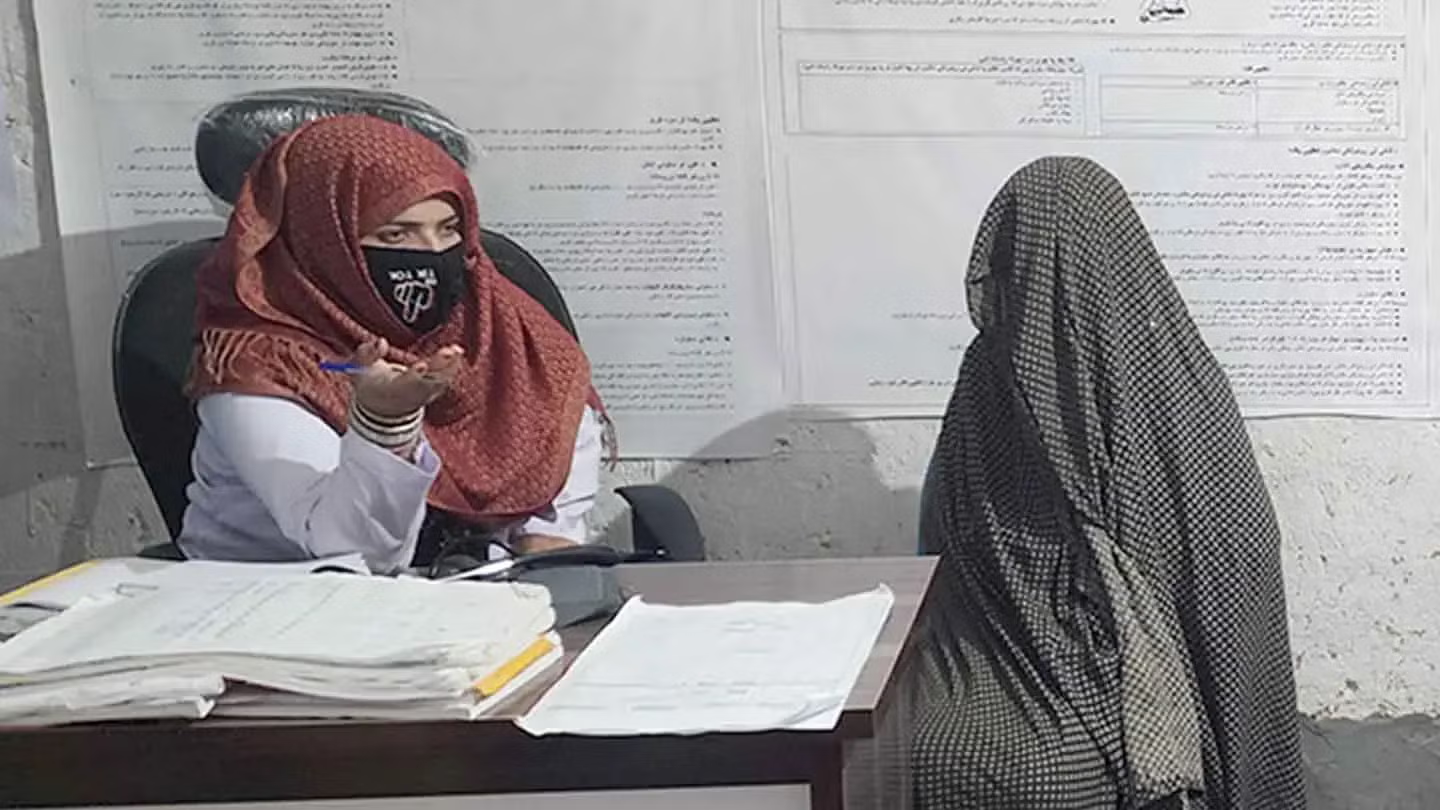Nangarhar, Afghanistan – Nine-month pregnant Karima had experienced difficult deliveries in the past but seeking professional care for her fourth pregnancy still did not come to mind until she felt unwell as she was nearing her due date.
“There was no nearby health facility in our village that’s why I never sought professional antenatal care. But then I got unwell and had to visit a doctor,” she narrated.
Fortunately, as she was in such a dire condition, a Mobile Health Team (MHT) was visiting her village. Worried about her condition she went to see the midwife at the MHT, fearing that she might need Cesarean-section delivery.
Midwife Sarah Wahidi, after examining 26-year-old Karima, allayed her fears and sent her home after giving her instructions to get well. The midwife said Karima was suffering from malnutrition and recommended a balanced diet that would be beneficial for both her and her unborn baby.
“Our team visited her at least twice more for antenatal care and continued to observe her condition to ensure her delivery would be safe,” Sarah explained.
Karima followed the advice. When it was time to deliver, the midwife was at her side to safely deliver the healthy baby boy.
Karima felt special, receiving support from the professional midwife at home. “My baby was born safely, just what I prayed for. The midwife was accessible anytime to assist me, she was always just a phone call away,” Karima shared.
The midwife’s care did not stop at the delivery. During the first follow-up visit after the delivery, Karima continued to receive comprehensive care, support, and guidance.
"We advised her on infant nutrition, family planning, and the importance of follow-up consultations," Sarah said. Karima also received a Mama and Baby Kit and a Dignity Kit, which contain hygiene, clothing and other supplies that both mother and baby can use following the delivery, especially during the winter months.
A week after delivery, Karima and her baby were doing well. When they returned for postnatal care, the midwife was elated to see them. “I was happy that Karima followed my advice and came back for postnatal care,” Sarah expressed.
Despite facing challenging terrains to reach communities in dire need of maternal and reproductive health support, Sarah said the MHT, supported by the Government of Australia, remains dedicated to providing their full services to people in hard-to-reach and remote communities. The MHTs provide an opportunity for women and girls in the villages to access midwifery, psychosocial, and nutrition services, just like what Karima experienced.
“While it is not an easy job, the satisfaction of supporting women and bringing smiles to families' faces makes it all worthwhile,” Sarah said. “As long as a baby is delivered safely and a mother is supported, that means everything to me.”





